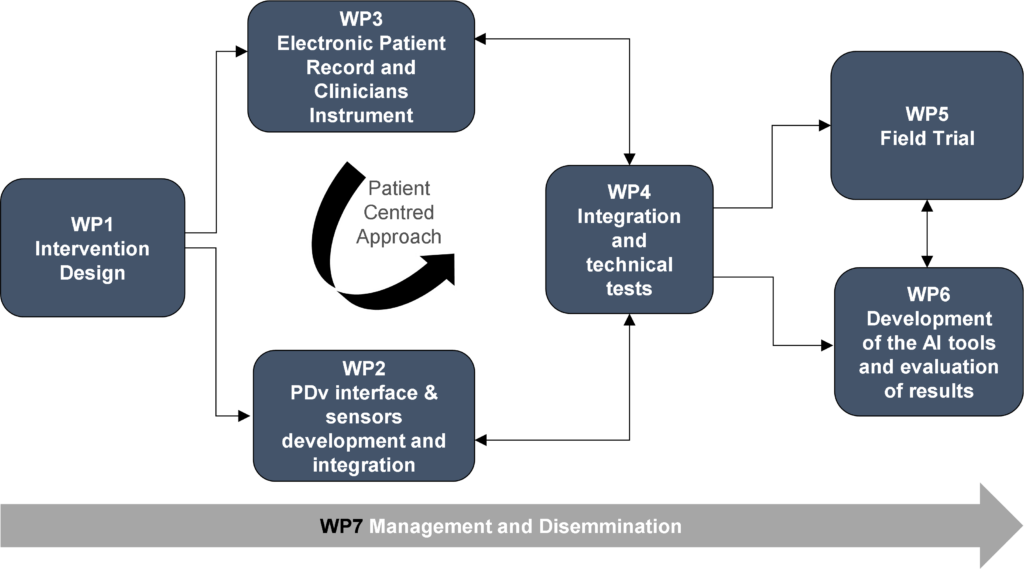Work-Plan
This project will import the methodological approach applied in some of our previous patient telemonitoring projects like AMICA and epoc@. In particular, the prototype development tasks will follow a user-centred design methodology, involving in the loop either the healthcare personnel, the patient, or their caregivers. The project is divided into two phases: development of the technical/clinical components (WP1, WP2, WP3) including their integration (WP4), and conducting the observational prospective study and evaluating the results (WP5, WP6). WP7 is responsible for the management, and dissemination throughout the entire life of the project .

Grant PID2021-126810OB-I00 funded by:


